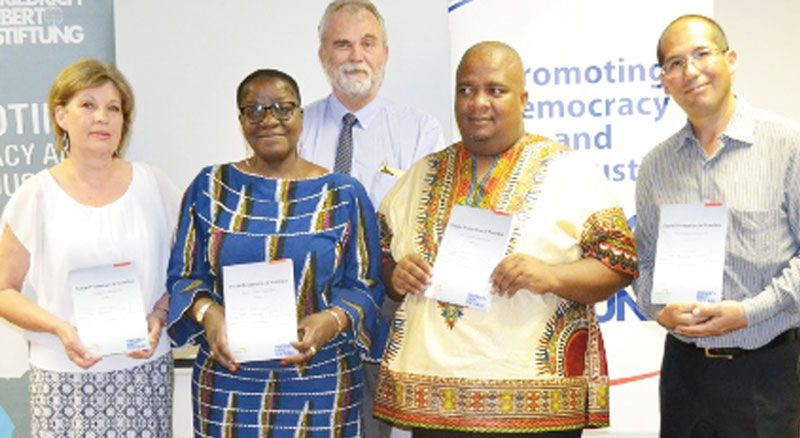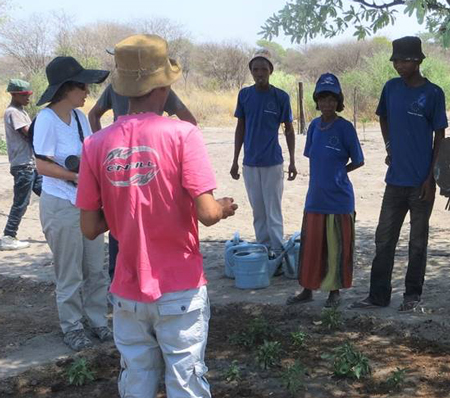
Social Protection through society’s eyes

Human rights activist Uhuru Dempers calls for more active social protection systems that would reduce poverty and contribute to asset redistribution. Dempers suggested that these systems should include measures that would address the structural basis of poverty and social exclusion.
Dempers spoke at the official launch earlier this week of his latest book titled: Social Protection in Namibia- a civil society perspective, explaining that the book looks at Social Protection as a developmental tool. The book is a reader friendly resource for civil society. It is part of a joint venture between the NANGOF Trust and the Friedrich Ebert Foundation.
The foundation’s resident representative, Heiner Naumann who also spoke at the launch said following the international economic crisis, a common understanding among international policy-makers has emerged that Social Protection is not only a human right, but also an economic necessity as it serves as a stabilizer during times of crisis.
He explained that it has also become clear, that far from being just a cost factor in national budgets, Social Protection systems should be part and parcel of national development strategies.
“We see that the world is getting richer, materially and financially, while at the same time that wealth is distributed more and more unequally,” Naumann said quoting the horrible statistic that in 2016 the world has reached a stage where the richest one percent of the population possesses more wealth than the other 99%, a trend that is valid for developing and developed countries.
According to Naumann the rise in inequalities between countries as well as within is negatively affecting equal access to health, employment, the situation of the elders, education, knowledge and environmental goods. He said it is in view of this that the Social Protection Framework (SPF) Initiative, World Bank’s Social Net Concepts and the Sustainable Development Goals have taken up this discussion.
“In developing countries the will to invest in long term-strategies for building up social protection floors seems to be losing momentum,” he said.
“We see this tendency very clearly in Namibia in these days where the budget situation hampers the introduction of new Social Protection instruments.”
According to Naumann, contrary to the widespread believe that social protection is too expensive for developing countries, it has been proven that SP is affordable and that it can foster development.
“Social Protection should be seen more as an investment which brings a return rather than a cost factor in national budgets.”
A social policy expert and community activist John Nakuta, who also spoke at the launch, said that the Harambee Prosperity Plan’s call on society to extend a helping hand to those who need help is in line with the need to make Social Protection a human right.
Nakuta proposed an amendment to the provisions in the Namibian Constitution that deal with Social Protection in order to make Namibians’ economic, social and cultural rights fully justifiable and that all laws related to Social Protection be amended to make them more human rights compliant.
The activist recommended that a Social Protection Act be enacted and that all Social Protection-related pieces of legislation be harmonised as well.
He further recommended the domestication of all international agreements related to Social Protection that Namibia has ratified or agreed to implement.










































